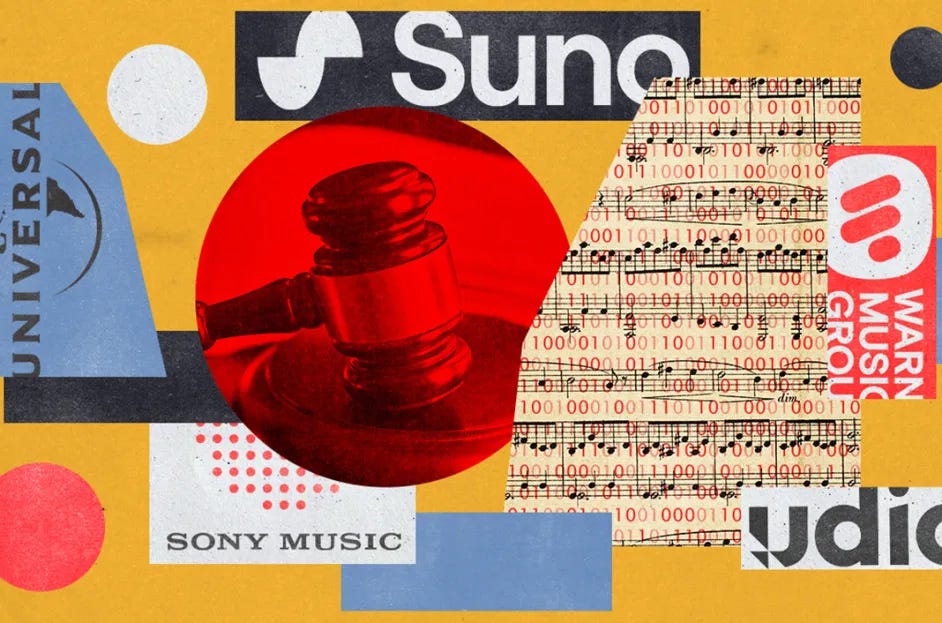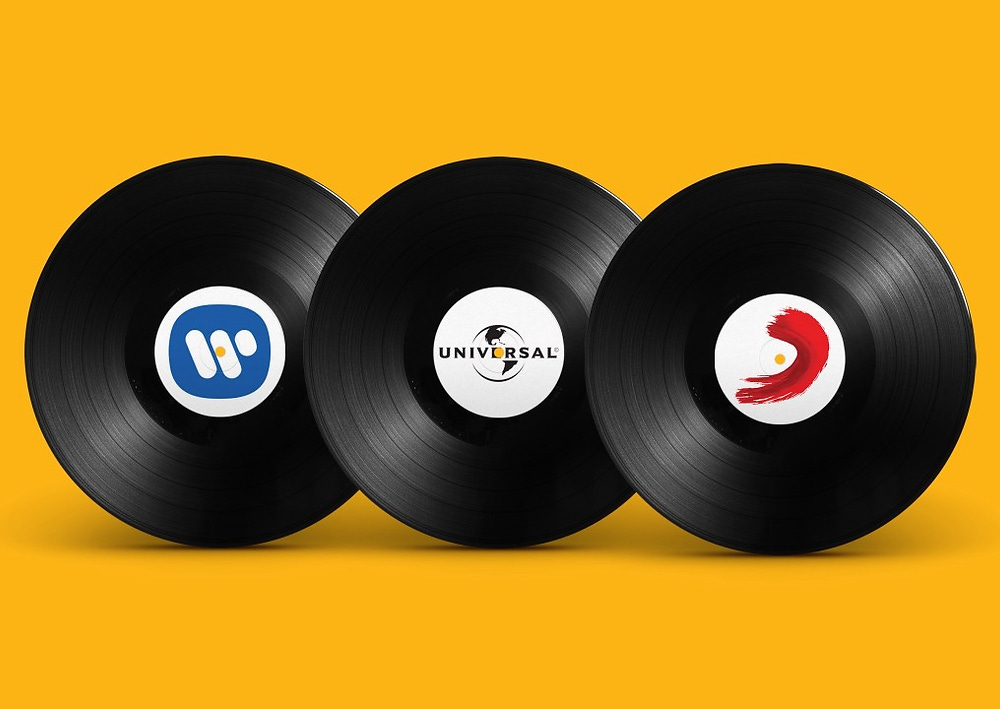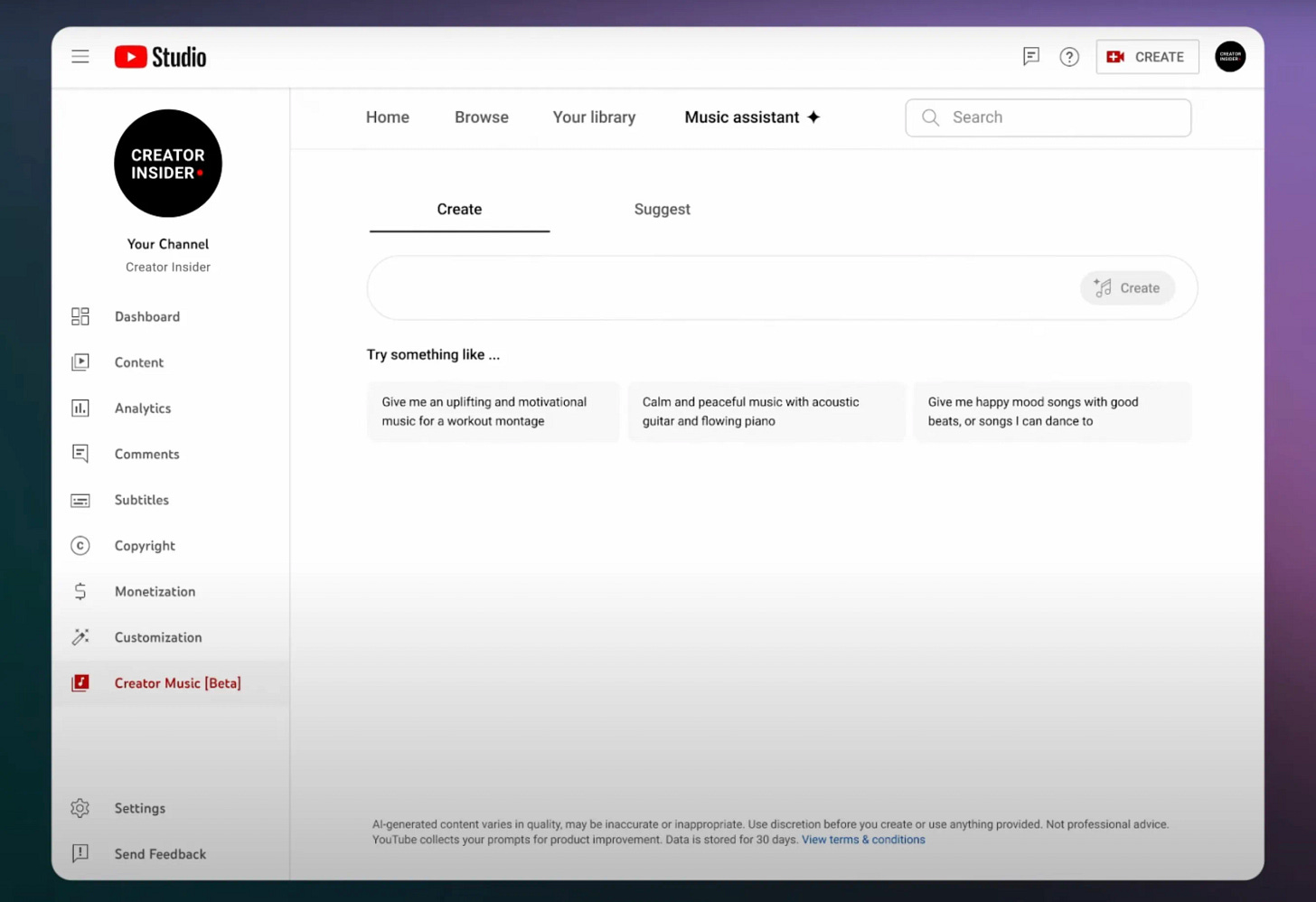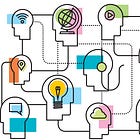The AI Music Factory | How Labels Plan to Replace Artists 🔄👨🏻🎤
The Hidden Agenda Behind the AI Revolution in Music
PICTURE THIS 🙌🏻
In a sleek conference room in Los Angeles, music executives review quarterly projections with unusual excitement. The PowerPoint slide on display doesn't showcase an upcoming superstar or a ground-breaking album but instead, it details investment returns on proprietary AI music systems. The presentation includes
A timeline for gradually reducing "talent overhead" while maintaining "content output."
This isn't science fiction; this is the music industry's quiet revolution, happening behind closed doors while artists are told AI will be their creative partner, not their replacement.
Welcome to the AI music factory 🏭, where major labels and tech companies are strategically positioning themselves to maintain control over music production while systematically reducing their dependence on human artists.
In this investigation, we pull back the curtains on how the entities that have historically profited from artists' labour are now engineering a future where those artists become increasingly optional.Following the Money | The Strategic AI Investment Trail
To understand the true objectives of the music industry's AI push, we need to follow the money. Major record labels have been aggressively investing in AI music technology; not as a side bet, but as a central strategic initiative.
Universal Music Group (UMG), the world's largest music company, has made significant investments in AI music startups while simultaneously fighting against unauthorized use of their artists' works to train AI systems. In March 2023, UMG partnered with YouTube to establish "AI incubator" programs ostensibly to help artists experiment with the technology. However, the partnership also gives UMG unprecedented control over how music AI develops.
Warner Music Group (WMG) invested in Endel, an AI-powered platform creating personalized soundscapes, back in 2021.
Sony Music has backed numerous AI startups through its Sony Innovation Fund. These investments aren't simply exploratory but represent a calculated hedging strategy.
"The labels are playing both sides. Publicly, they're posturing as defenders of artists against unauthorized AI usage. Behind closed doors, they're racing to build systems they fully control."
explains Sarah Thompson, former digital strategy director at a major label.
The financial logic is straightforward. A human artist typically receives 15-20% of streaming revenues in a traditional record deal. An AI system owned outright by a label would allow them to keep 100% of the revenues while eliminating the complexities of managing human talent; no tour support, no advances, no creative differences, no renegotiations when artists gain leverage.
The Double-Speak | "Artist Tools" vs. Replacement Technology
The marketing of music AI reveals a fascinating linguistic sleight of hand. When pitching to artists and the public, these technologies are invariably described as "creative assistants," "collaborative tools," and "productivity enhancers." Internal discussions and investor presentations tell a different story.
IN PUBLIC 😁:
"AI will help artists unlock new creative possibilities."
IN PRIVATE 🤔:
"AI will reduce production costs by 70% while maintaining output quality."
IN PUBLIC 😁:
"Artists can use AI to enhance their workflow."
IN PRIVATE 🤔:
"We can gradually reduce artist roster size while maintaining catalogue growth."
This double-speak extends to how these tools are introduced to artists themselves.
By framing early AI tools as merely assistive; helping with mastering, arrangement suggestions, or simple beat creation, artists are encouraged to integrate them into their workflow, effectively helping to train and improve the very systems designed to eventually minimize their role.

The Economics of Ownership | Why AI Music Makes Financial Sense for Labels
The traditional music business is built on a complex web of rights management, royalties, and revenue splits. From a label's perspective, this system is rife with inefficiencies:
Artist royalties (15-25% of revenue)
Producer points (3-5%)
Songwriter royalties (mechanical rights)
Negotiating leverage of successful artists
Marketing costs to break new artists
A&R costs to find and develop talent
AI music systems owned by labels would streamline this entire economic structure. A song created by a label-owned AI system would generate no ongoing artist or producer royalties. The mechanical rights could be handled through work-for-hire arrangements with the programmers who built the system, or the label could use public domain melodies and progressions to avoid mechanical rights entirely.
This stark economic reality explains the intense interest in AI music generation. In a quarterly earnings call, one major label CEO noted that
"emerging technologies may allow us to optimize the content creation process,"
a euphemism for reducing the label's dependence on human creators.
Lending Your Voice (and Soul) | The New Artist Contract
Perhaps the most telling development is how artists are now being approached to "license their sound" to AI systems. These offers typically come with upfront payments that seem generous but include terms that are profoundly problematic for artists' long-term interests.
A famous Grammy-nominated producer was reportedly approached by a major label subsidiary in late 2022.
"They offered me $75,000 to license what they called my 'sonic signature,' essentially the right to clone my production style for unlimited use. When I asked if I'd receive royalties when they used this AI version of my sound, they said no; just the one-time payment."
These contracts typically include:
Complete transfer of rights to the artist's "sonic characteristics"
Broad permissions for the company to generate unlimited content in the artist's style
Limited or no royalties on works created using the artist's voice or style
Non-disclosure agreements preventing artists from discussing terms
No limits on how the synthetic version of the artist might be used
This approach essentially requests artists to sell their musical identity; the culmination of YEARS of creative development, for a one-time payment.Perfect Fit Content | Music as a Utility
Streaming platforms like Spotify have already transformed how music is valued, shifting from an ownership model to an access model where individual songs are worth fractions of pennies. AI music generation takes this commodification to its logical conclusion with what industry insiders call "Perfect Fit Content."
Perfect Fit Content refers to music created specifically to match exact moods, activities, or demographic targets. Unlike human artists who create from personal expression, AI systems can be directed to produce music scientifically designed to:
Match specific emotional states for maximum engagement
Optimize for particular contexts (workout, study, sleep)
Appeal precisely to target demographic profiles
Fit exact duration requirements for ads or social media
Generate infinite variations on trending sounds without licensing complications
Spotify's "Discovery Mode" and similar initiatives have already begun training artists to think of their music as content that should fit algorithmic preferences. AI-generated music simply removes the human middle-man from this equation.
A former Spotify product manager revealed:
"The long-term vision was always to have complete vertical integration, from music creation to distribution. If you control both ends, your margins improve dramatically."
The Industry Pattern | From Devaluation to Replacement
This AI music strategy doesn't exist in isolation; it's the natural progression of how the music industry has systematically devalued creative work over the past two decades. As we detailed in our previous analysis "The Spotify Illusion: How Streaming Platforms Devalue Music While Claiming to Save It", the economics of streaming have already reduced music to a commodity measured in fractions of cents.
The shift to AI music production follows the same playbook:
Introduce technology as an enhancer/democratizer of creativity
Gradually normalize reduced compensation for creators
Create systems where creators compete against algorithmic preferences
Replace human elements with automated alternatives
Maintain control over distribution and monetization
This pattern has repeated across creative industries; from journalism to visual art to video production. Music, with its massive global audience and high emotional engagement, represents perhaps the most valuable target.
The Human Cost and Cultural Implications
Beyond the economic impact on artists, the shift toward AI-generated music raises profound questions about culture and creativity. Music has historically served as cultural documentation by capturing the lived experiences, struggles, innovations, and emotions of human communities. AI music, even if it reaches a sophisticated level, fundamentally lacks the authentic human experience that gives music its deeper resonance.
What happens to music culture when algorithms designed to maximize engagement replace artists speaking truth from lived experience? What voices will be lost? What movements will never find their anthem?
The standardization of music through AI also threatens regional diversity and cultural specificity. Human music creation is beautifully inefficient; full of happy accidents, cultural cross-pollination, and unexpected innovations.
AI systems, trained on existing data and optimized for engagement metrics, inherently reduce this natural variation.
Resistance and Alternatives | Protecting Human Music
Despite this concerning direction, there are emerging points of resistance and alternative paths forward:
Artist Cooperatives are forming to develop ethical AI music tools that enhance human creativity rather than replace it, with transparent governance and fair compensation models.
Rights Organizations are pushing for new frameworks that would require AI music systems to properly license and compensate the artists whose works trained the AI.
Consumer Awareness campaigns are educating listeners about the source of their music and encouraging support for human artists.
Blockchain and Direct Support Models are creating alternative economic structures where artists can connect directly with fans who value their work.
Legislative Efforts are underway in several countries to establish clear rights frameworks for AI-generated content that protect human creators.
Conclusion | The Choice Before Us
The AI music revolution isn't inevitable in its current form.
It represents a choice that is currently being made by EXECUTIVES and INVESTORS without sufficient input from ARTISTS or THE PUBLIC.
The technology itself is neutral; how it's deployed is not.
As LISTENERS, we have agency in this future. We can choose to support human artists directly. We can demand transparency about how our music is created. We can push platforms to fairly compensate the artists whose work made today's AI possible.
For ARTISTS, the path forward requires collective action, careful scrutiny of contracts involving AI, and development of alternative economic models that don't rely on the existing industry infrastructure.
The question isn't whether AI will play a role in music's future but whether that role will support human creativity or supplant it. The quiet revolution happening in corporate boardrooms suggests the industry has made its choice.
The rest of us need not accept it without a fight.🤝🏼🫵🏼 What do YOU think? Are you concerned about AI replacing musicians? Do you check whether your playlists feature human artists?
💬 Share your thoughts in the comments below & share this article to the people who need to know about this the most.
🤝🏼 Join us at Vinyl Culture as we continue exploring ways to preserve and evolve an authentic music culture in an age dominated by algorithms and corporate interests.
5️⃣0️⃣0️⃣+ SUBSCRIBERS have now joined our mission to protect The Soul of Music in the age of algorithmic manipulation & AI. Thanks a lot to each & every one of you!! 🫵🏼🤝🏼🙌🏻 Together, we can make a difference.











I’ve said for years, if you can’t write your own lyrics or reproduce what you did in the studio on a stage you’re not going to last. Take ownership of your craft, don’t let a third party make it for your.
Thanks again for getting the word out. I've been hearing this "creative enablement" line from tech execs I know personally for years now. I don't know if they're lying outright, or if it's just self-delusion on their part to assuage any guilt or sense of responsibility they may have for creating these technologies that are so transparently designed to increase corporate profit by removing the human element. Either way, I'm tired of being lied to by corporations and politicians.
"...and development of alternative economic models that don't rely on the existing industry infrastructure." - Exactly this, but I wonder what that looks like. The live performance economy has also been shrinking for decades; 200+ gigs a year will net you an income less than $40k. Tours lose money for the vast majority of artists, unless you're part of the "big industry." University teaching positions are few and far between and often don't pay enough.
I suppose the labels and big money interests have done a good job of conditioning our culture to believe that the only metric of success for artists is massive corporate-funded fame. But there are thousands of us being churned out by university music programs every year that are not and will never be Live Nation headliners, and these programs so far are completely failing to adapt to this changing landscape. They were already behind the curve before AI hit the scene.
Even audio engineers at the top of their craft, who have climbed as high as you can in the industry, see the writing on the wall. They too have no idea what to do about it.
I continue to walk the path because, for me, it is a spiritual one and a matter of necessity. Thinking too long about the business side of it quickly renders me hopeless and robs me of the spirit I need to actually create.